Initial Course In Celestial Navigation
Join your fellow crew in Spain for two immersive days of celestial navigation training. No prior experience is necessary as we guide you through the fundamentals from the ground up. You’ll master the use of the sextant and learn how to navigate using the Sun and stars to determine your position. These study days are intensive but captivating, offering a deep dive into the art of celestial navigation and preparing you for real-world application out on the open ocean.
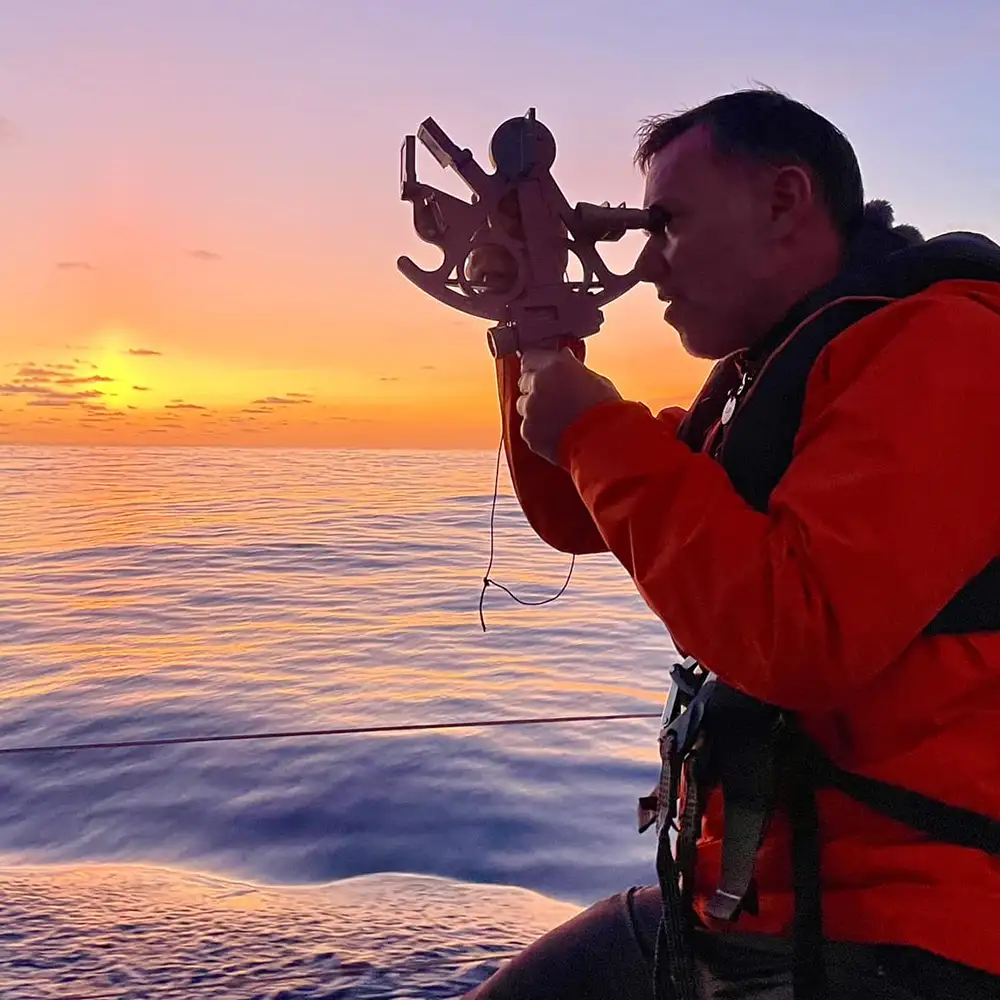
Training and preparation in the Spanish Rias
Before we venture into the open Atlantic, we’ll spend our first couple of days in the serene and stunning Rías Baixas. These fjord-like inlets are a sailor’s paradise, offering ideal training grounds and the chance to fine-tune skills. Here, you’ll take part in rigging checks, provisioning, and safety briefings, while enjoying the breathtaking coastal villages, local seafood, and quiet anchorages. Whether honing navigation techniques or practicing sail trim in more sheltered waters, these days will build the confidence needed for the offshore leg.
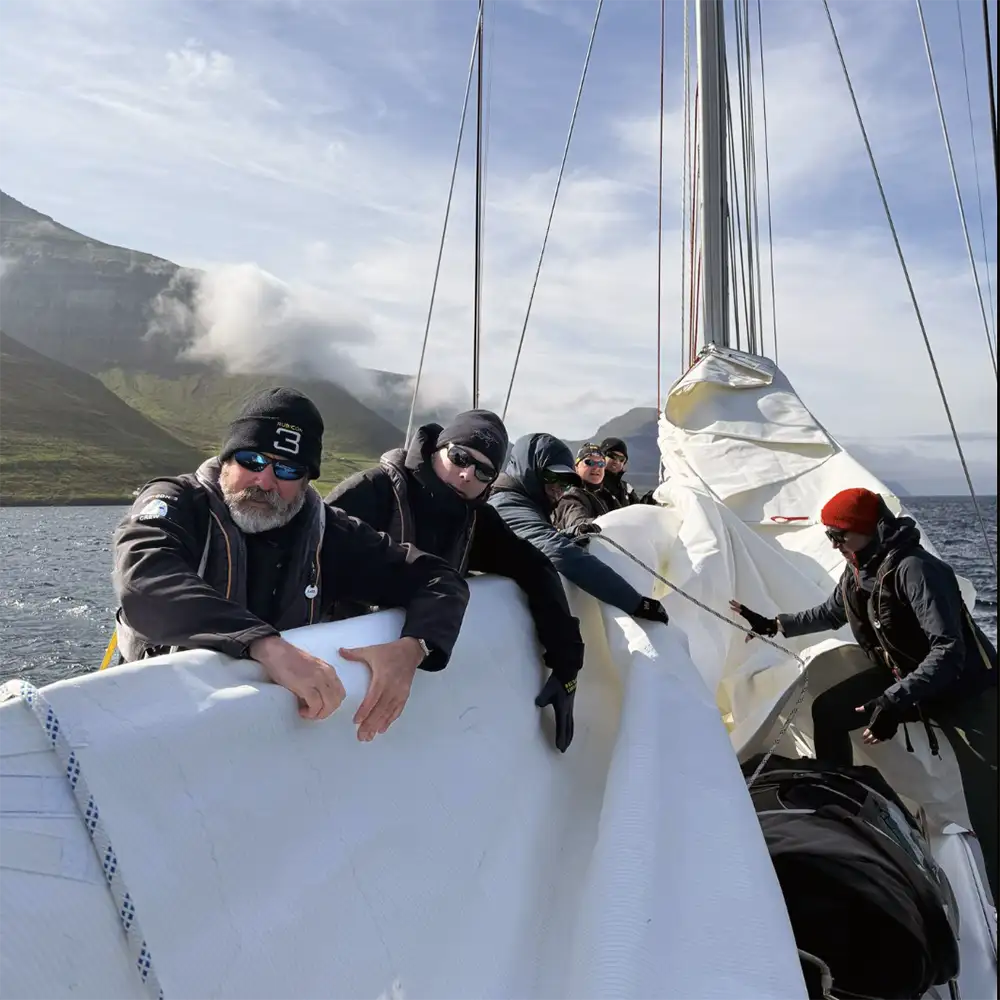
Islas Cíes
Located just off the coast of Vigo, the Cíes Islands are part of the Atlantic Islands of Galicia National Park and are often referred to as the “Galician Caribbean.” The islands offer us a beautiful anchorage, pristine beaches like Playa de Rodas (often ranked among the best in the world), and crystal-clear waters perfect for a swim.
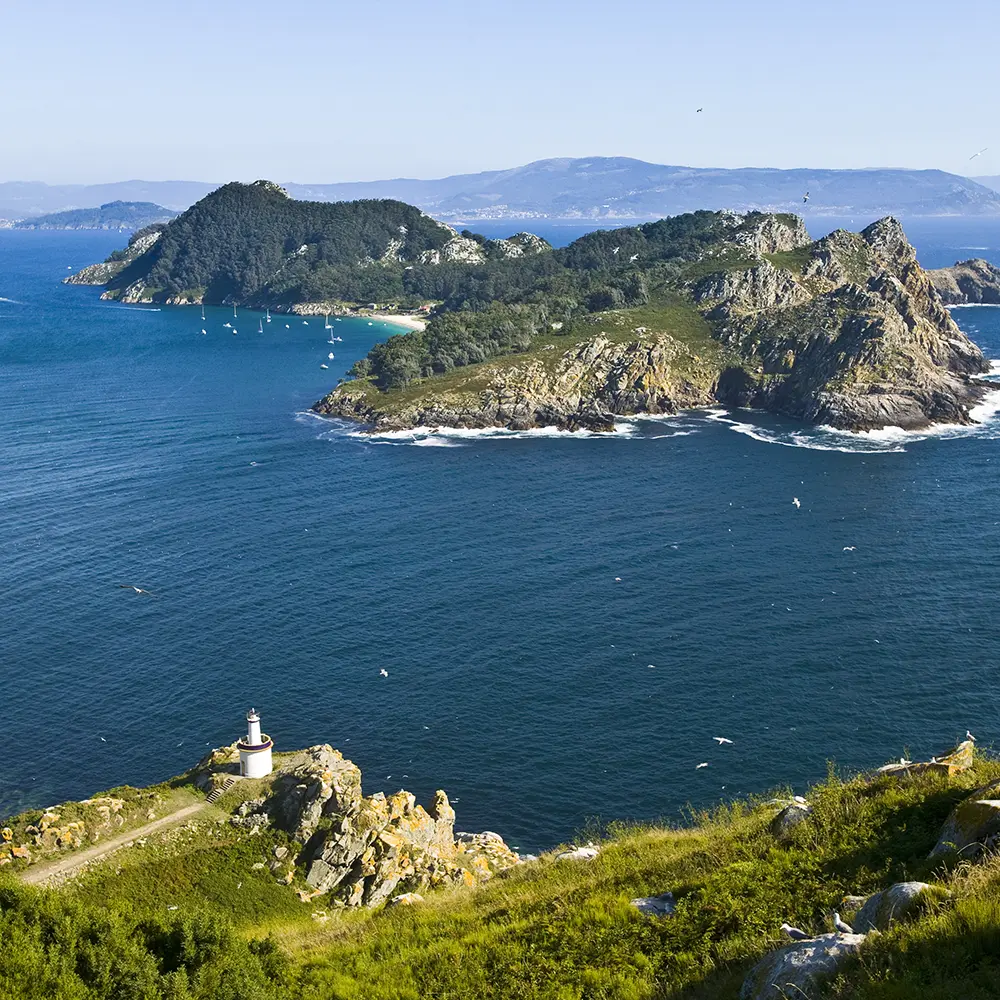
Baiona
A historic coastal town just south of Vigo, Baiona is an enchanting spot with a mix of old-world charm and seaside appeal – and a favourite overnight stop of ours. It was here that one of Columbus’s ships, the Pinta, first arrived with news of the New World. Baiona has a beautiful marina and we can explore the old town with its narrow, cobbled streets.
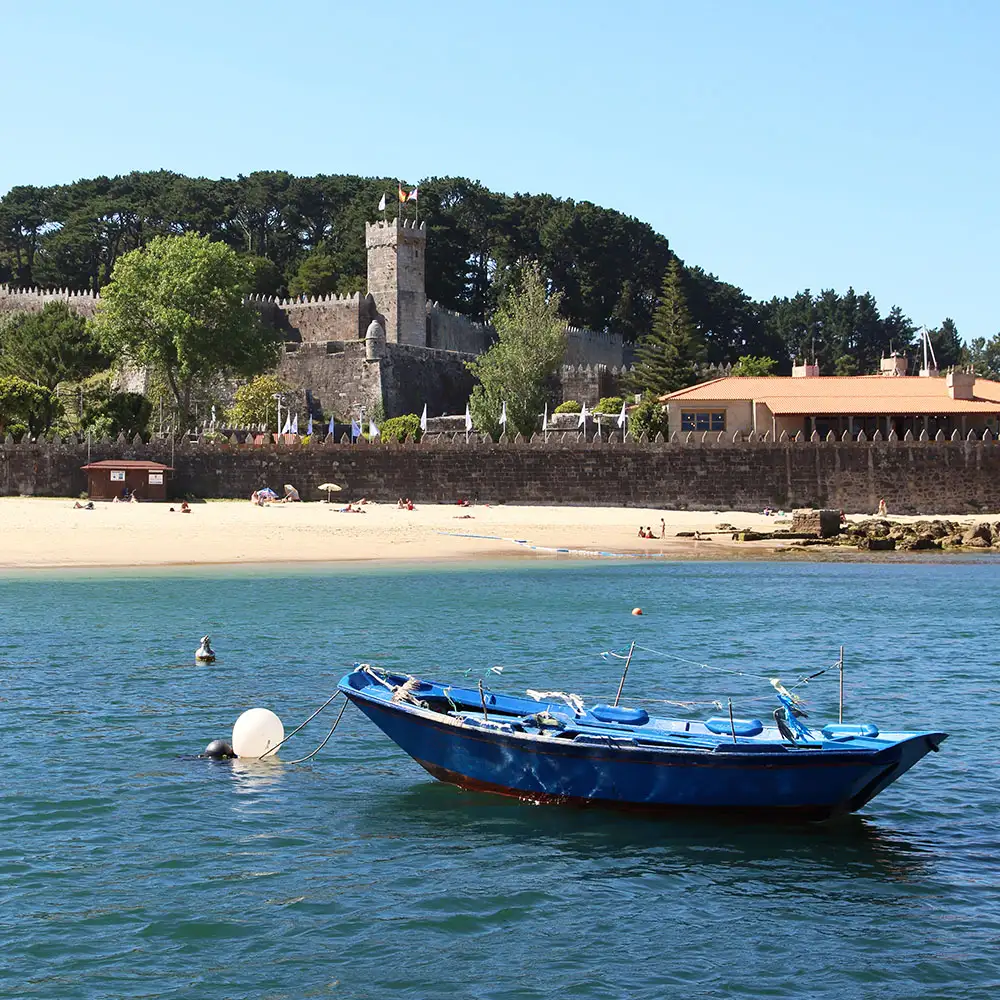
Ría de Aldán
A bit further from Vigo, the Ría de Aldán is another hidden gem with secluded anchorages, small fishing villages, and pristine beaches and is ideal for anchoring overnight. The surrounding landscape is stunning, with rolling hills and lush greenery.
Heading out to sea
It’s always dramatic as we finally head out into the Atlantic and see land disappear behind us. Life at sea quickly settles into a routine governed by the elements and the necessities of sailing. Each day is structured around watches, navigation checks, sail adjustments, and some boat maintenance. You’ll have day watches and night watches, when you will see star scapes unlike any you have ever seen before. When you’re not on watch, you can rest, read, gaze out over the endless horizons and spectacular sunrises and sunsets and immerse yourself in the experience of being out in the Atlantic Ocean.
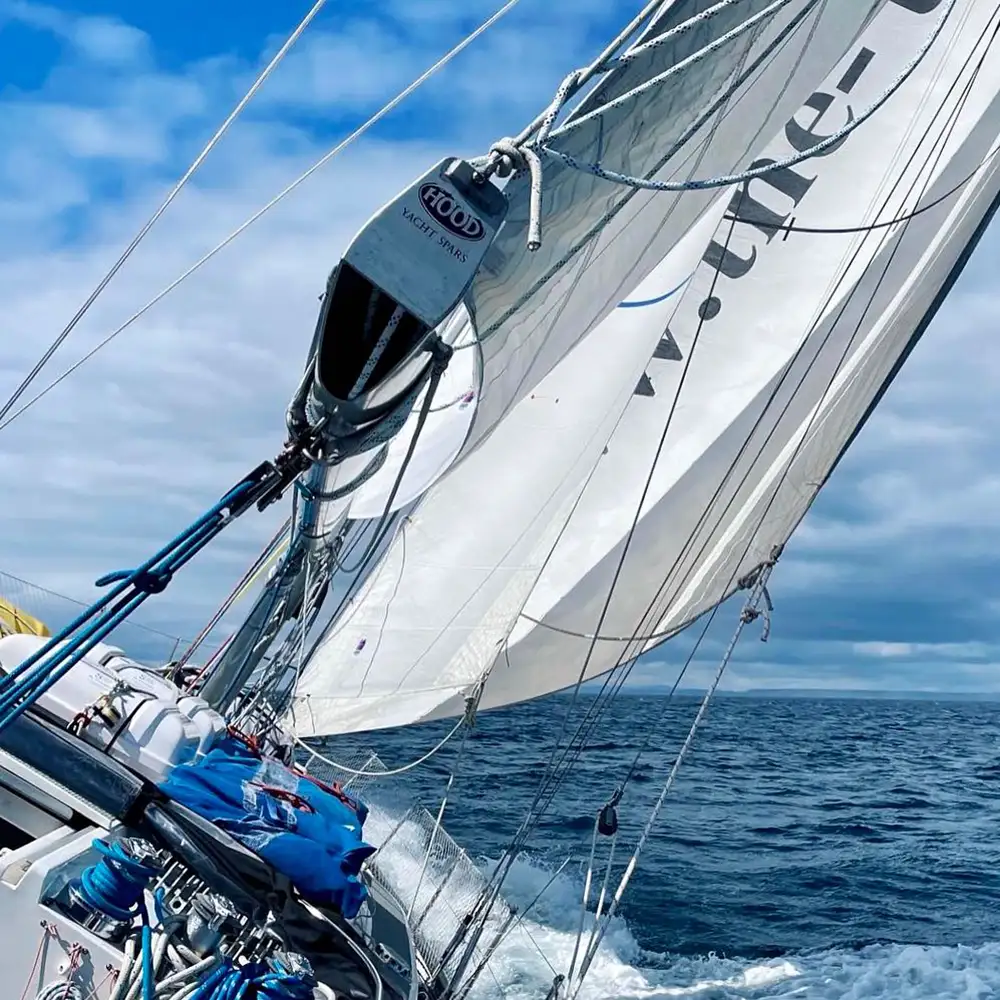
Helming and Navigation
Helming the yacht is a shared responsibility, with crew members rotating to keep the vessel on course. While GPS is onboard, it will remain safely hidden away, allowing us to fully immerse ourselves in celestial navigation. With each passing day, you’ll gain confidence and precision in using the sextant to navigate by the stars, sun, and planets. During the dawn watch, you’ll use twilight stars and planets to establish a fix, while daytime watches focus on the Sun for navigation. By sunset, you’ll return to the stars and planets for a final fix before darkness sets in. As we sail through the night using dead reckoning, your celestial abilities will continue to sharpen, ready to be tested again at dawn. With each watch, your skills will improve as you navigate ever more accurately across the open ocean.
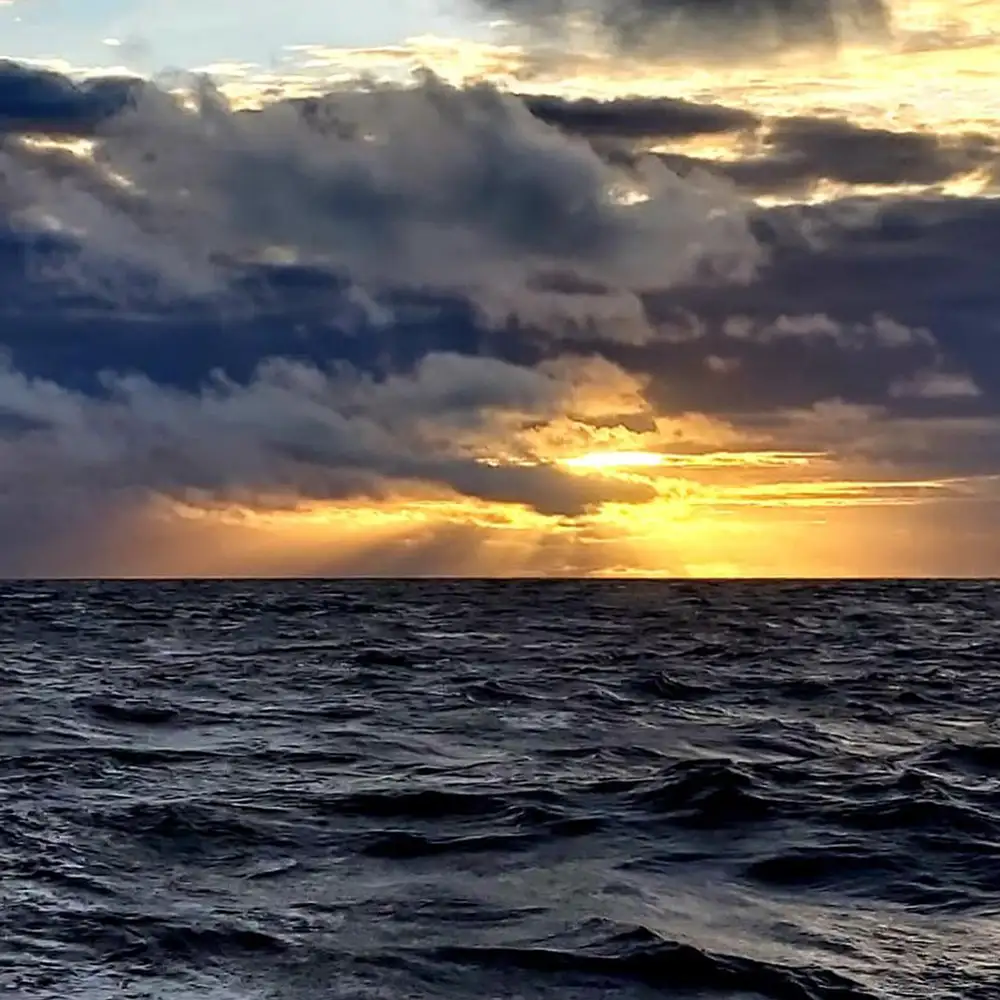
Trimming Sails and Keeping Watch
We need to keep moving as quickly and efficiently as we can, so trimming sails to suit the wind conditions is a constant task that requires attention and teamwork. Efficiency and speed depend on correctly setting the sails, a skill you will be honing with your ever-increasing experience and knowledge. Keeping watch always involves more than just watching for other vessels; it’s about monitoring weather changes and sea conditions and keeping us going fast and well.
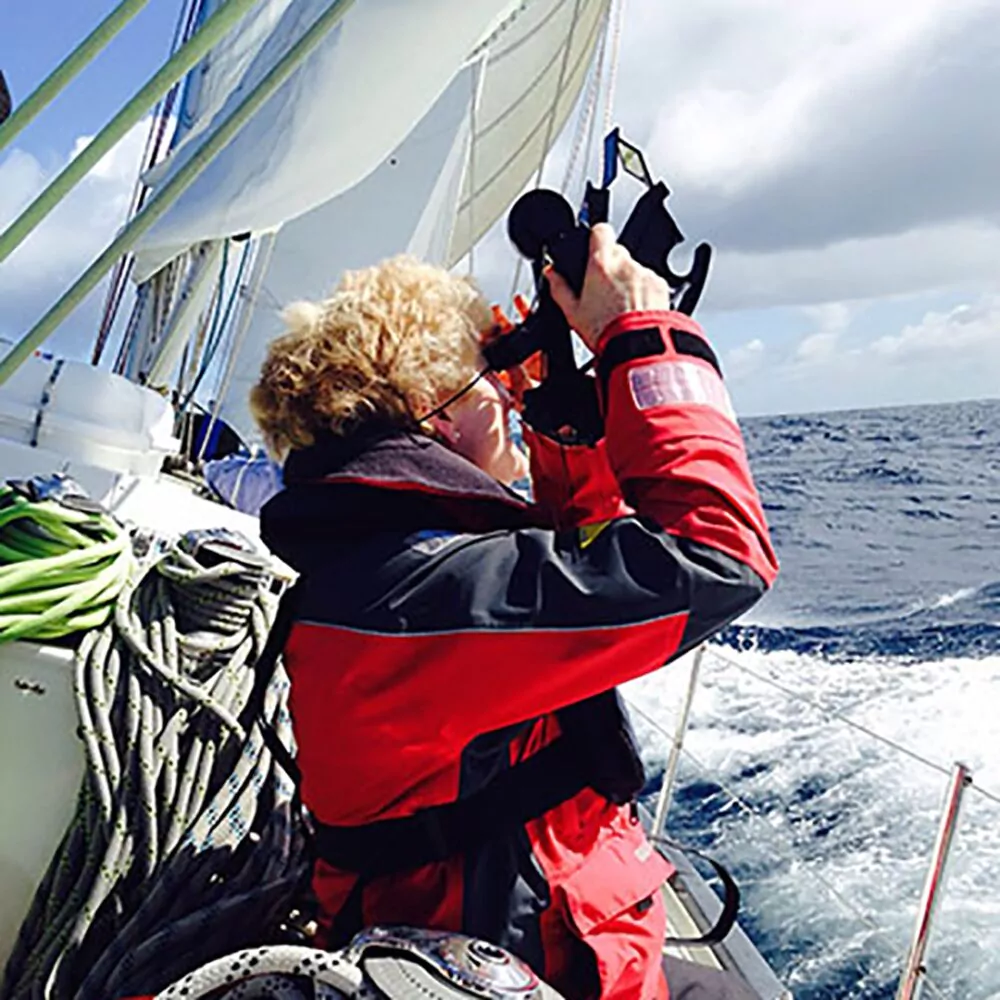
Cooking and Meals
Meals are always central events of the day, providing not just welcome food but a chance for all the crew to come together, chat and share experiences. Cooking at sea, in a confined and moving space, challenges crews to be creative with limited ingredients. It’s fun and becomes ever more fun to see what can be made with the remaining food.
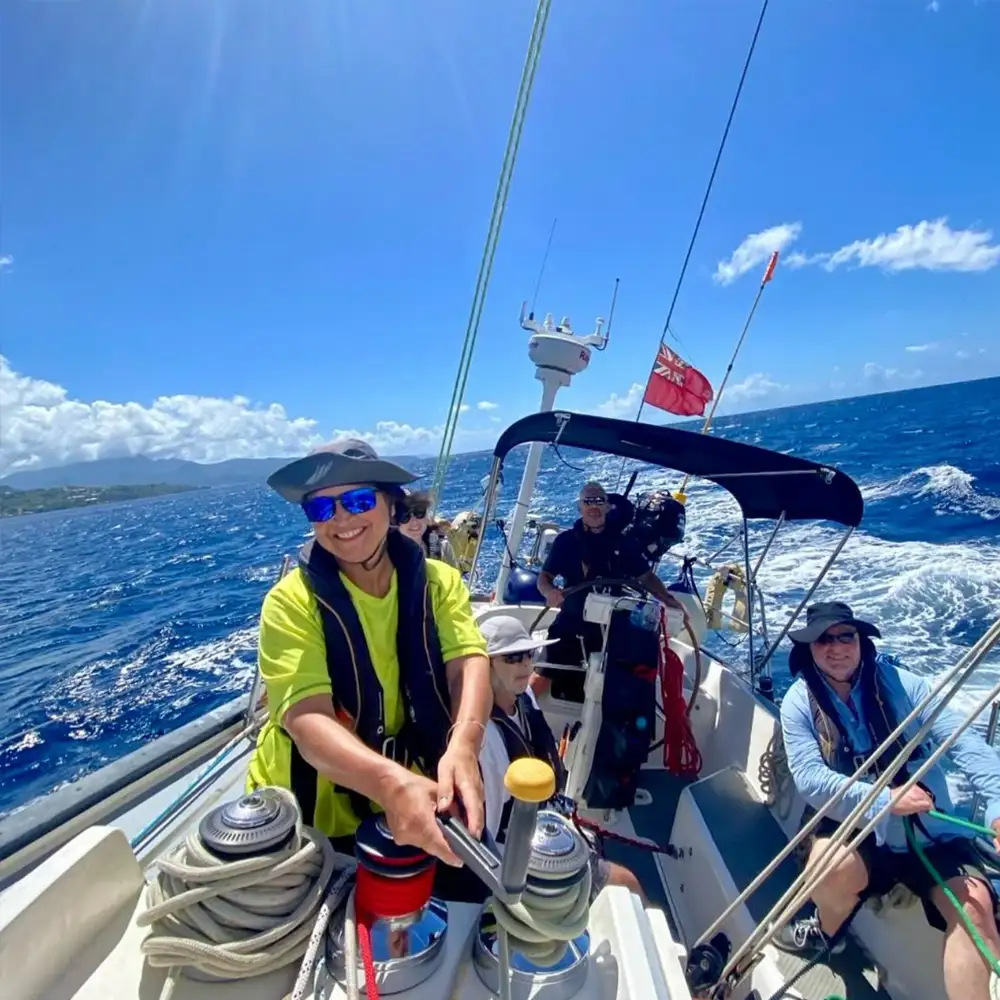
Relaxing and Leisure
Despite the demands of sailing, there is plenty of time for relaxation and introspection. The vastness of the ocean offers a unique backdrop for reading, contemplation, or simply enjoying the solitude and beauty of the ocean. Watching dolphins play in the bow wave or marveling at the unobstructed view of the stars at night are experiences that stay with sailors long after the crossing is over.
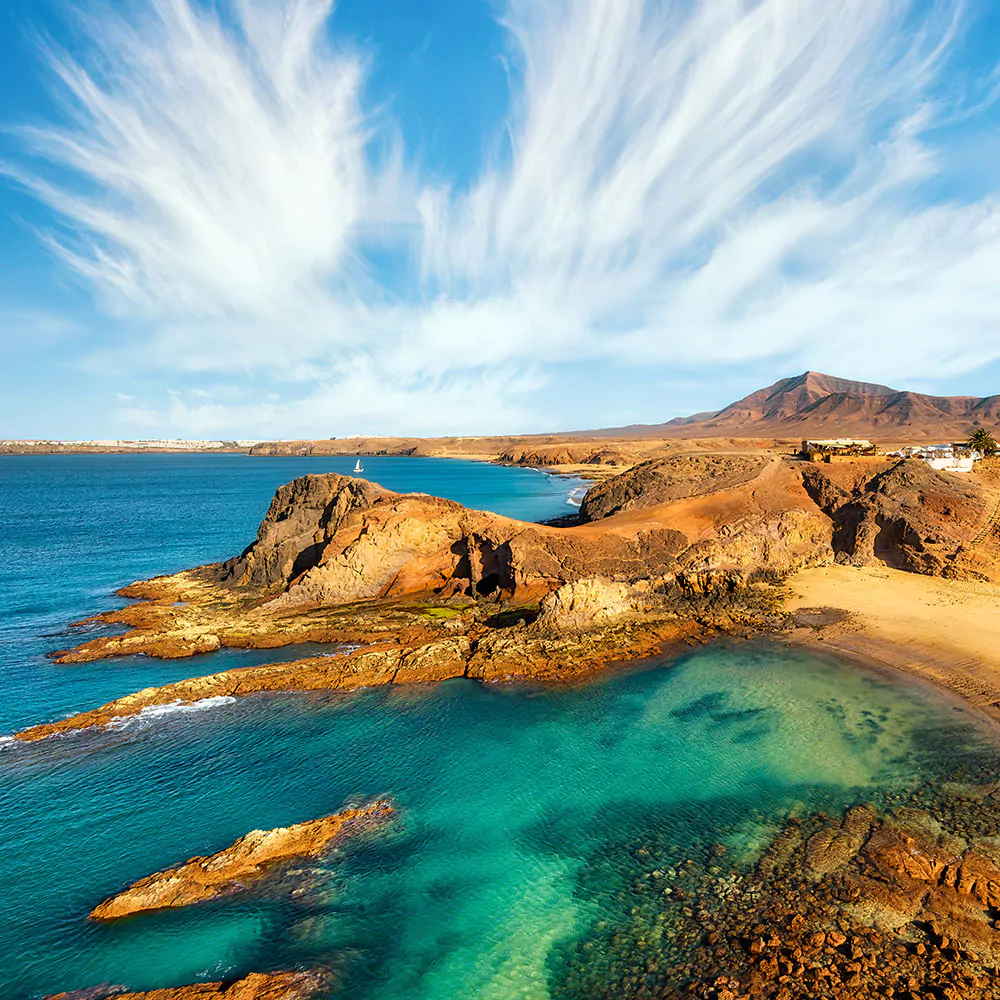
Lanzarote
If weather and timings allow, after 700 miles and around 5 days of sailing, we hope to make a stop in Lanzarote, one of the Canary Islands’ most captivating destinations. Known for its otherworldly volcanic landscapes and lively culture, Lanzarote offers a perfect contrast to the last few days at sea. Although a brief respite, it provides an ideal and fun opportunity to stretch your legs, sample local cuisine, and take in the striking beauty of this volcanic gem before we continue our voyage to Gran Canaria.
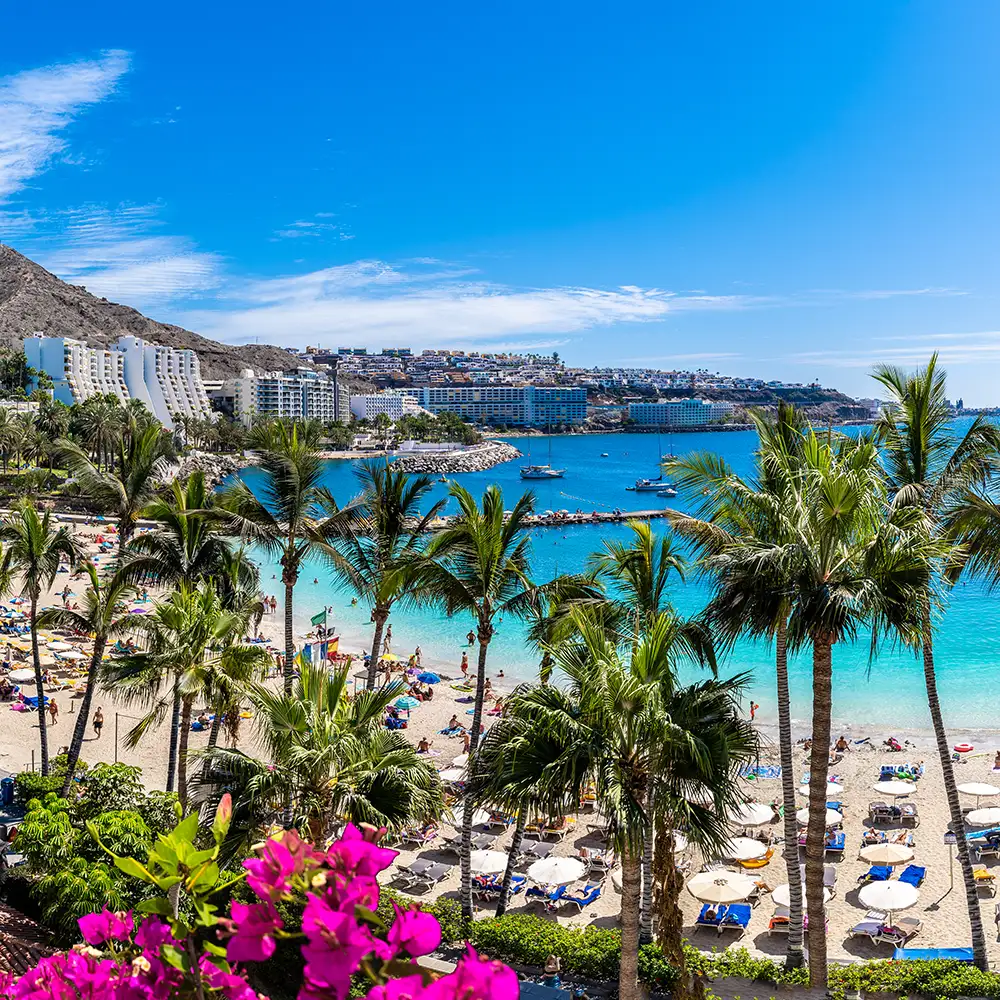
Final Passage to Gran Canaria
As we embark on the final 300-mile, two-day leg to Gran Canaria, there’s a palpable shift in the crew’s energy. Now skilled in celestial navigation, confident, and fully immersed in the rhythm of the ocean, each crew member moves seamlessly from task to task—whether it’s helming, sail trimming, or taking a celestial fix. The shared sense of achievement and camaraderie is undeniable, often mingled with a bittersweet feeling—sadness that the journey is drawing to a close, yet excitement for the landfall ahead. As the warm trade winds propel us toward the sun-drenched shores of Gran Canaria, we feel the anticipation of reaching our destination. At the same time, we savor these final moments at sea, knowing they are the culmination of a voyage—and newfound celestial skills—that we will always cherish.